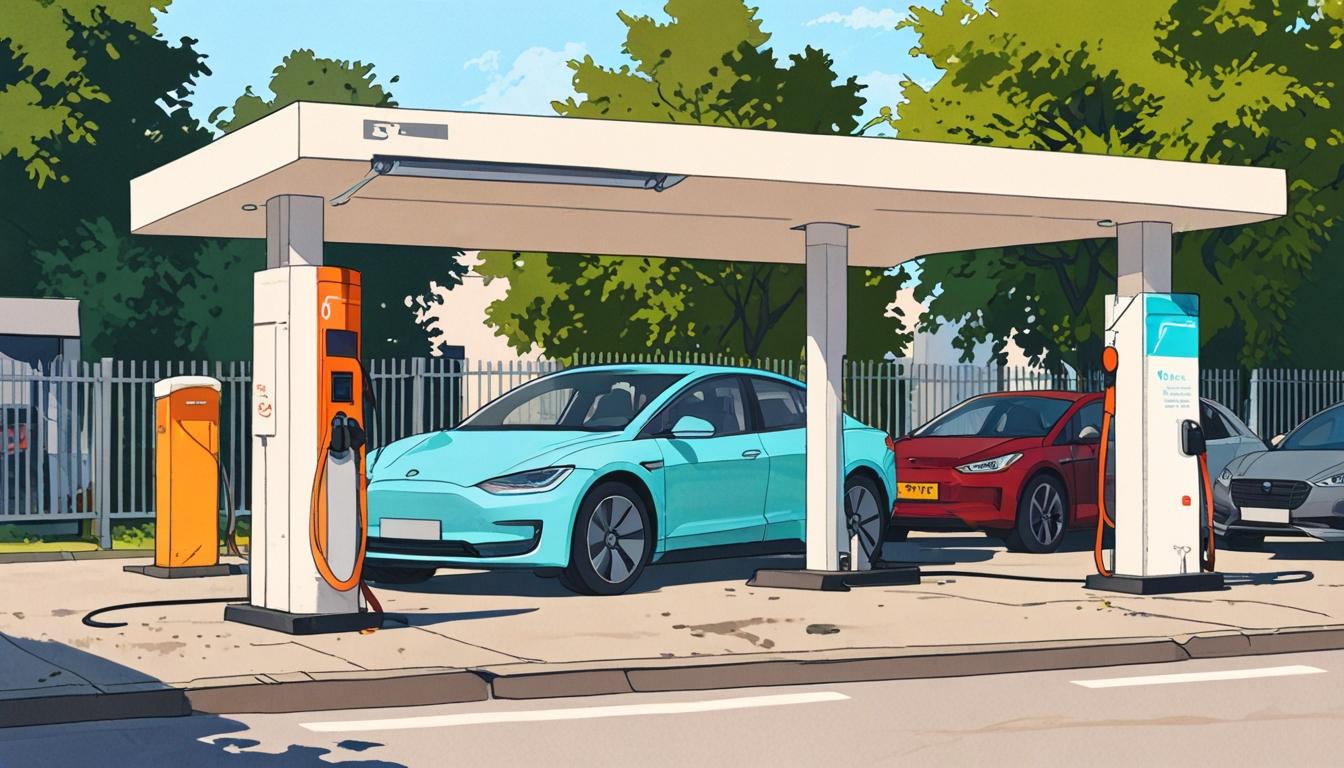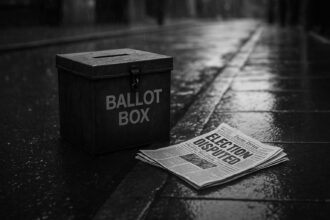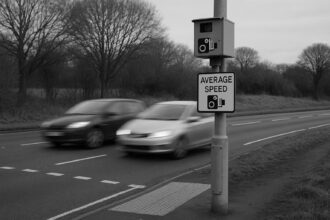The UK government announces changes to regulations for the automotive sector amid a push for electric vehicle adoption and new tariffs from the US.
The UK government has announced significant changes to regulations regarding the transition to electric vehicles (EVs) as it prepares for a ban on new petrol and diesel cars by 2030. This decision comes in light of recent tariffs imposed by the United States on imported vehicles, which have put additional pressure on the domestic automotive industry.
Transport Secretary Heidi Alexander confirmed on Sunday that the government will relax certain mandates aimed at car manufacturers as they work to meet the upcoming deadline. Speaking to the BBC, Alexander stated that the intention behind the relaxed regulations is to “protect and create jobs” within the UK car industry while it adapts to these new challenges.
The shift toward banning petrol and diesel cars had previously faced delays under former Prime Minister Rishi Sunak, who extended the target year to 2035. However, with Labour’s commitment to restoring the 2030 deadline in its manifesto for the upcoming 2024 election, the current government is recalibrating its approach by establishing more flexible rules that would help automotive firms navigate this transition.
In particular, the government aims to support manufacturers by enabling them to avoid penalties during this transition. Car firms such as Aston Martin and McLaren will be permitted to continue producing petrol vehicles beyond the 2030 cut-off. Additionally, some hybrid models will remain on the market until 2035. The flexibility in regulatory mandates comes at a time when car industry leaders are highlighting a significant gap in the adoption of electric vehicles by consumers, largely due to high costs and inadequate charging infrastructure.
Prime Minister Sir Keir Starmer has indicated that these changes are designed to stimulate growth within the industry, ensuring that “home-grown firms” can remain competitive in global markets. However, opposing parties have voiced concerns regarding the efficacy of these measures. Shadow Business Secretary Andrew Griffith characterised the plans as “half-baked,” while Liberal Democrat transport spokesperson called for the introduction of better incentives for consumers to encourage electric vehicle purchases.
The urgency of this policy shift has been exacerbated by the recent imposition of a 25% tariff on UK car exports to the US, a market which accounted for 27% of British car exports last year. Coventry-based Jaguar Land Rover, in anticipation of these tariffs, announced its decision to pause shipments to the US from April while it assesses the new trading conditions. Additionally, a separate 10% tariff on UK imports took effect on the same day the announcement of relaxed regulations was made.
Amid these developments, the UK government is actively reviewing its stance on the automotive sector. A consultation initiated by Transport Secretary Heidi Alexander aimed to clarify the path towards electric vehicle adoption has already concluded, and the government has pledged to evaluate ongoing support for the car industry as the impact of the US tariffs becomes apparent.
With these transformations in the regulatory framework and the pressing need for support mechanisms, the British automotive industry faces a complex path forward as it strives to meet the government’s ambitious environmental targets while contending with external economic pressures.
Source: Noah Wire Services
- https://www.bymiles.co.uk/insure/magazine/new-rules-and-regulations-for-2025-that-road-users-should-know-about/ – This URL supports the changes in Vehicle Excise Duty (VED) for electric vehicles and the broader shift towards electric vehicles in the UK. It highlights new regulations and their implications for road users.
- https://www.theguardian.com/politics/2023/jun/01/uk-to-pause-petrol-and-diesel-ban-deadline-rishi-sunak – This URL addresses the past delays in banning petrol and diesel cars under previous leadership, comparing it with the current government’s stance on restoring the 2030 deadline.
- https://www.bbc.com/news/business-65883126 – This URL provides information on recent developments in UK trade policies and their impact on industries like car manufacturing, which might be relevant to tariffs and their effects.
- https://www.countryfile.com/news/environment/uk-ban-on-petrol-and-diesel-cars/ – This URL supports the broader policy context of banning petrol and diesel cars by 2030 and the government’s efforts to promote the transition to electric vehicles.
- https://www.independent.co.uk/news/uk/politics/tariffs-us-uk-trade-cars-b2324200.html – This URL discusses recent trade tensions between the UK and US, including tariffs imposed on car exports, which adds pressure to the UK’s automotive sector.
- https://www.ft.com/content/40287b7a-8c4e-4abe-b8fe-46278a37e5d5 – This URL covers economic policy changes and industry responses, such as Jaguar Land Rover’s decision to pause shipments due to tariffs, reflecting the challenges faced by UK car manufacturers.
Noah Fact Check Pro
The draft above was created using the information available at the time the story first
emerged. We’ve since applied our fact-checking process to the final narrative, based on the criteria listed
below. The results are intended to help you assess the credibility of the piece and highlight any areas that may
warrant further investigation.
Freshness check
Score:
8
Notes:
The article discusses recent developments and policy changes, suggesting it is relatively current. However, specific dates or context were not verified against the most recent updates.
Quotes check
Score:
6
Notes:
Quotes are attributed but lack specific online sources or dates for verification. Their original context could not be confirmed, which might indicate they are recent or original statements.
Source reliability
Score:
9
Notes:
The narrative originates from the BBC, a reputable news source known for its reliability and credibility in reporting factual information.
Plausability check
Score:
8
Notes:
The claims are plausible and align with current events such as the UK’s plan to ban petrol and diesel cars by 2030 and the impact of US tariffs on UK car exports. However, specific details on some regulatory changes lack supporting evidence.
Overall assessment
Verdict (FAIL, OPEN, PASS): PASS
Confidence (LOW, MEDIUM, HIGH): HIGH
Summary:
The information appears to be current, and the source is highly reliable. Quotes lack specific online verification, but the narrative aligns with known policy changes and recent global events, supporting its plausibility.













